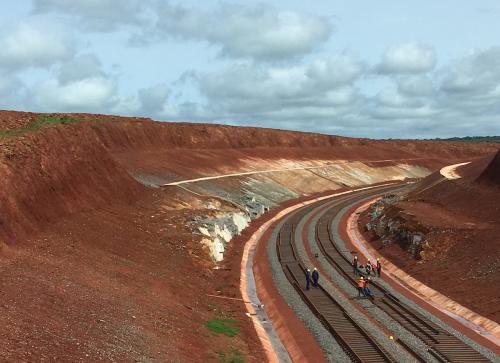One of the foremost challenges Christian Paradis faces in his new role as Canada’s minister of international development is the need for better accountability structures across the complex patchwork of global development actors.
This is a hot topic in the international debates on what post-2015 framework should follow the Millennium Development Goals that have guided global anti-poverty efforts since 2000. Local governments, donor governments, private companies, civil society organizations, international agencies and philanthropists all have a role to play. But even when all sides share common goals, there needs to be a clear way to track responsibilities over time.
Nowhere is this more relevant than Mozambique, one of 20 focus countries in Canada’s current international assistance strategy. The country’s history is complex. Having suffered a brutal civil war from 1977 to 1992, it has since seen major progress on many fronts. Over the past decade alone, average per capita incomes grew more than 50 per cent while child mortality declined nearly 40 per cent, backed significantly by external aid. The country’s natural resource industry is booming, and mining companies, including Canadian firms, are investing hugely in local production. However, the progress builds from an incredibly low starting point. Mozambique still ranks 185th out of 187 countries on the UN’s Human Development Index. One in 10 children still don’t live to see their fifth birthday, and more than half of the population still lives on less than $1.25 per day, according to the latest available data.
In May I visited Maputo, the national capital. On a Friday night I was riding in the passenger seat as my friend Erik Charas drove me back to my hotel following dinner and a concert. Erik is a highly respected local entrepreneur, best known as the founding publisher of Verdade, Mozambique’s most widely read newspaper. It is distributed for free, guided by a simple mission of empowering local citizens with the tool of public information. Erik is a former mentee of Graça Machel and is also an accomplished social entrepreneur. His latest business venture introducing affordable, working-class apartments is popular enough to garner strangers’ unsolicited purchase offers when he strolls through public cafés.
A couple of weeks before my visit, Erik was detained overnight by police for not paying a bribe at an informal roadside check point. Given his profile and sophisticated knowledge of the law, the issue was picked up by local media and generated significant public attention. Erik was confident that the detention was illegal, and so asked for a proper written record of it at the police station. By the time I arrived, the legal proceedings had not yet started to churn in any direction.
Canada should not meddle in other countries’ politics, but it should support local development and democratic processes while enforcing highest standards for its own companies.
Against that backdrop, I was not entirely surprised when two police officers wearing military-style greens and machine guns pulled Erik and me over as we were driving. However, I was surprised when the lead officer recognized Erik’s face and dejectedly waved us on, clearly wanting to avoid a public debacle. Even more remarkable was that we were pulled over again a second time by different police only a few minutes later, just outside my hotel. But this time the police didn’t recognize Erik and so an apparent shakedown sequence began. I don’t speak Portuguese, but I understood enough to know that Erik was declining the officer’s instructions. Agitation grew quickly until I heard the officer cock his machine gun. Erik simply drove away mid-sentence, in defiance of the threat.
Sadly, police intimidation is not uncommon in much of the world, but this was a shockingly crass breakdown of public institutions in the middle of what is otherwise a peaceful tourist zone. Locals later told me the problem in Maputo is recent and growing, a new fact of life for nighttime driving.
The obvious question is, who should be held accountable? The answer, alas, is less simple. I am not an expert on Mozambique, but this type of problem probably results from multiple factors. Part of it is likely driven by extremely low wages for front-line police officers, who feel compelled to supplement their incomes amidst a rising cost of living. Part of it is likely driven by the strain of highly visible inequalities, with the natural resource boom boosting elites’ incomes while rising prices eat away at others’ stagnant paycheques.
Part of the problem is by definition a breakdown in the discipline of public institutions. But many level-headed locals believe this to be a byproduct of a structurally flawed relationship between the national government and foreign companies. There is a broad concern that the natural resource contracts are providing huge returns for foreign investors and the politicians, but not much for local Mozambicans. And once the contracts are set, even when highly flawed, they are typically in place for decades, with no recourse for Mozambicans to cry foul and renegotiate. The rule of law protects bad contracts, even if it does not prevent them.
Such difficult situations need multi-pronged solutions. Canada should not meddle in other countries’ politics, but it should support local development and democratic processes while enforcing highest standards for its own companies. On one side, aid budgets can continue to support targeted service-delivery initiatives, like the health programs that have been hugely successful all around Africa. They can also help to ensure local civil servants’ wages are properly indexed, especially when foreign industries are pushing up the cost of living. And they can support, with no strings attached, local think-tanks that promote transparency in public debates and critical evaluations of public finances.
At the same time, new ground rules are needed for extractive industries themselves. Firms that make or facilitate bribes of course need to be punished, but that sets too low a bar. Although companies should not be expected to play the role of governments, some form of global “fair share” principle is probably required as a minimum percentage of profits that always stays within a host country. Cash transfers could be sent directly to citizens through modern banking technology, as World Bank researchers have recently suggested. Companies could support specific job training and co-op programs as a standard portion of their revenues. They could also commit a common portion to local think-tanks that promote public debate.
As a major player in natural resources, Canada has a responsibility to tackle these global issues. In 2010, the Harper government helped introduce the important G8 accountability report that tracks progress on government commitments. Amidst the shifting weight of responsibilities in the global economy, post-2015 accountability needs to incorporate the private sector too. The Canadian government should work closely with Australian counterparts to propose a draft in time for the November 2014 Brisbane G20 summit. Minister Paradis’ previous portfolio at Natural Resources positions him well to play a key role. If he can bring industry and policy leaders together to create higher explicit performance standards on all sides, Canada can be at the forefront in defining new notions of accountability. In Mozambique and all the other emerging resource exporters, countless citizens will be grateful.



Commentary
Op-edRedefining Accountability Abroad
July 21, 2013